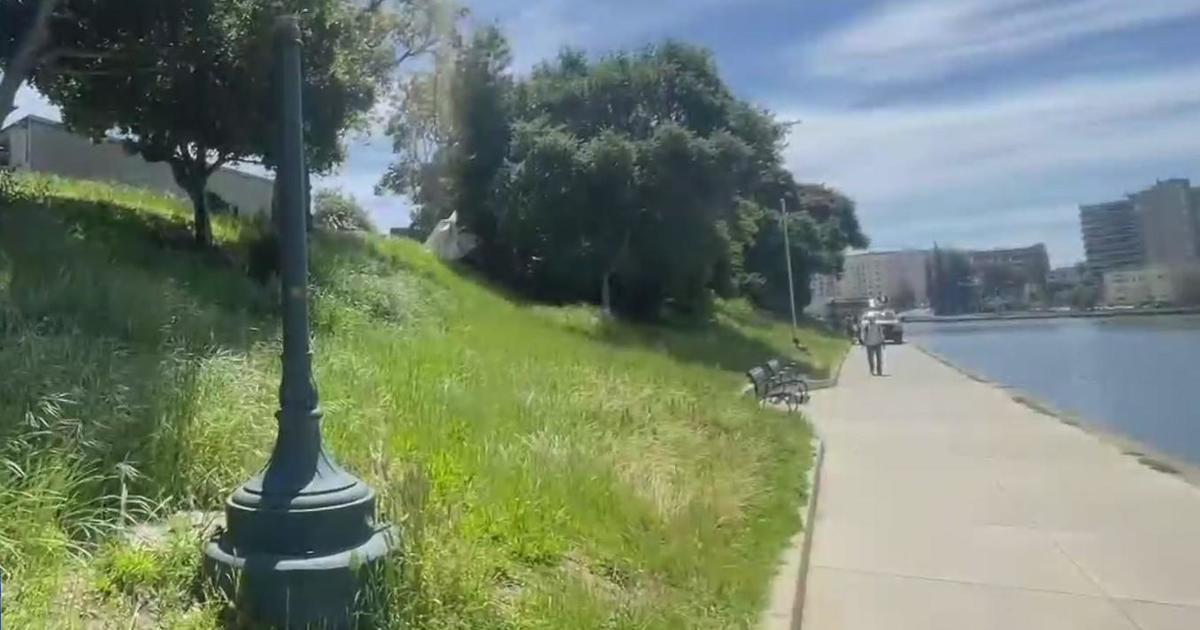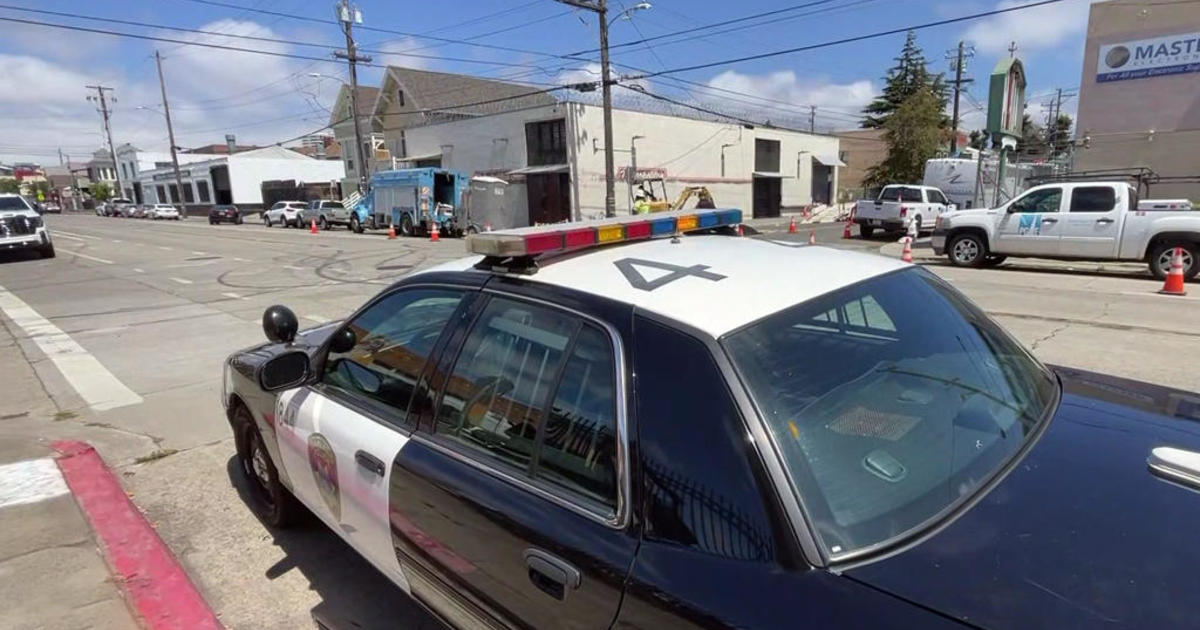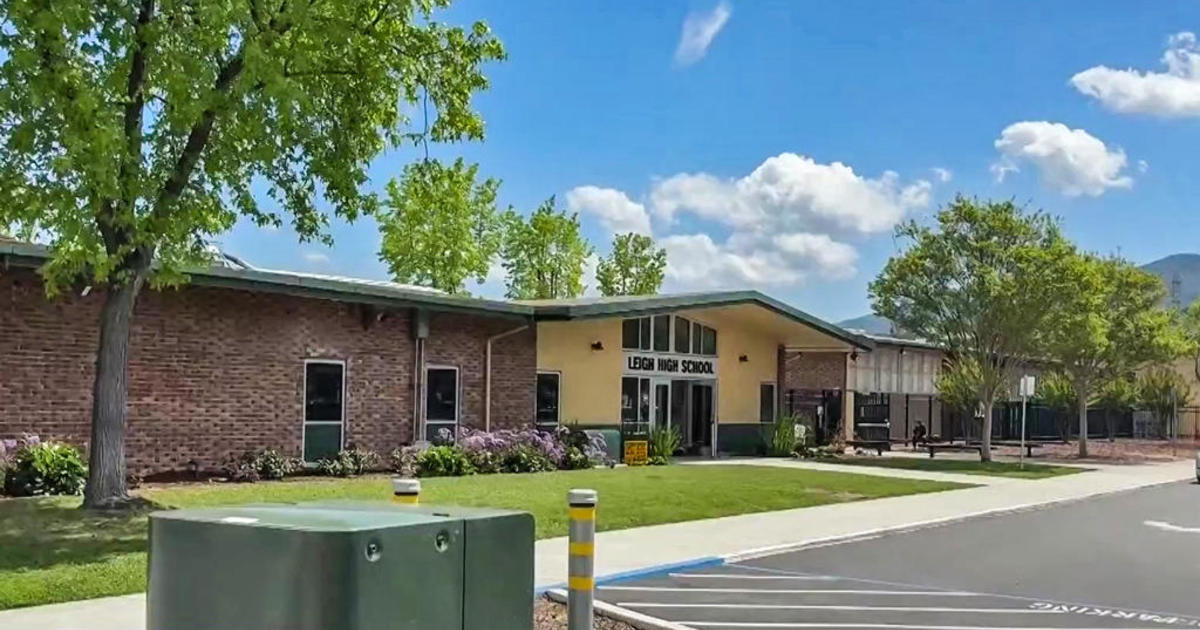Students Rising Above Sometimes Forced To Overcome PTSD
OAKLAND (CBS SF) - Living around violence in the inner city is making children sick. Kids living in high crime areas have a higher rate of post-traumatic stress disorder (PTSD) than soldiers because they are living in "virtual combat zones", according to Dr. Howard Spivak of the Centers for Disease Control.
After 21 years as a teacher in Oakland, Dr. Jeff Duncan-Andrade knows its effects: "You can take anyone who is experiencing the symptoms of PTSD and the things we are currently emphasizing in school will fall off the radar, because it frankly does not matter in our biology, if we do not survive the walk home."
Dr. Duncan Andrade is a professor at San Francisco State University as well as a teacher, and an expert who speaks across the country on the topic.
National statistics suggest that 30% of inner city kids suffer from mild to severe Post Traumatic Stress Disorder. One report by the National Urban League cites a study of 621 middle schoolers, where 52% of the students reported severe symptoms.
And unlike soldiers, inner city kids never leave the combat zone. Because of that, Dr. Duncan-Andrade says the disorder presents differently.
"What they're seeing in anybody but especially young people who have reoccurring exposures to trauma, is the symptoms and the way the body expresses is actually more complex than what we see in soldiers." This more complicated form of PTSD has it's own separate diagnosis: Complex PTSD. Dr. Andrade says that it's not just gun violence that causes the layers of toxic stress. "Kids are unsafe, they're not well fed, they're not well clothed, they don't have shelter and when you start stacking those kids of stressors on top of each other, this when you get these kinds of negative health consequences that seriously disrupt school outcomes." Worse, most of these children are not being treated.
Many of our Students Rising Above have lost family members to gun violence. One of them lost 10 members of her extended family.
But we became interested in PTSD when one of our Oakland students was diagnosed and treated for it.
We learned she was just the tip of the iceberg.
Last year, almost two thirds of the murders in Oakland were actually clustered in East Oakland- about 59 homicides.
We went there, to talk with a group of student leaders at Fremont High, who showed us where a classmate had been shot across the street from the school the year before. They hear about violence daily.
"You hear it on the news or you just hear someone coming up to school saying one of my friends or family members got shot or killed," says Marquis Wilhite.
The kids say they can feel it when a student has been traumatized. Sometimes, it's an unpredictable, hair trigger reaction to almost anything.
"They just act up, either talk back to the teacher or act rowdy," says Angel Cornejo. "They become someone else. They don't act like they usually act."
Marlon Orantes lost his cousin to gun violence and knows what it's like.
"If someone else in their family got shot and killed then they will be sad and be isolated...I have been through that. They been isolated and they don't want to talk to anybody," Orantes said.
Dr. Duncan-Andrade says the programs that have had the most traction treating Complex PTSD are in schools that have community health clinics built into them. They are more the exception to the rule. More often than not, he says the kids most at risk for Complex PTSD often end up concentrated in inner city schools with the least resources and least experienced teachers. Or as he puts it, "you take the group of people who need the most, and you give them the least."
At Fremont High in East Oakland, a group of eight teachers and administrators have a special weapon, in spite of the lack of money. They all graduated from Fremont and went back there to work.
"It was really important to come back," explained Nidya Baez, the Community School Manager, "for our students to see someone that looks like them in the classroom and for parents to see somebody who actually speaks their language."
The Fremont alums understand the symptoms of Complex PTSD first-hand, including fear, a hyper-vigilance or hyper-alert behavior, depression and unexplained anger.
Coach Scot Alexander sees the depression a lot.
"You hear about it everyday, about kids having problems or what's going on in the streets and they bring that in here and the biggest thing is to have someone that's from here to be able to go back and reflect and tell them that there are other ways in which you can do things," said Alexander.
Teacher Patricia Segura agrees, saying teachers have to help the students redirect their emotions.
"The anger comes with them. Whatever they're experiencing at home, whatever they experience in the streets, the anger comes with them," Segura said.
The Principal at Fremont High, Emiliano Gonzales has had to come up with special ways of talking kids through tough moments.
"If we were to follow traditional suspension discipline policy, we'd be blowing up the suspension rates. We'd have more students out than in. So, we try to have those conversations with the to try to find out what's going on," he said.
That talking and the relationships it engenders are crucial.
"The research is crystal clear," says Dr. Duncan-Andrade. "The single most protective factor in a child's life that is experiencing toxic stress is a caring adult."
That caring adult can make a difference even when professional help is not available.
Fremont High's Community Program Manager Roxanne Isaguirre says students are often looking for someone to talk to but it takes time to build a bond.
"Too often our students don't feel like they can trust anyone," she explains. "You have to take the time and be real intentional about the relationships you build with your students."
And for kids who are fearful, teacher Michelle Gonzales says, "we have to provide that safety. I think that comes first. If a person feels safe in your classroom, the child will learn."
There are many therapies that are shown to help treat the symptoms of PTSD. But Dr. Duncan Andrade points out that school budget cuts have removed some of the most obvious solutions.
"There's all kinds of evidence that suggests how good sports is, how good music is, how good dance is, how good performing arts are, guess what we are cutting out of these schools?
The students gravitate to many of these activities on their own or after school.
"I listen to a lot of music and I listen to music that I can relate to," says Angel Cornejo. Marquis Whilhite puts it this way: "when you put on your earphones and you go to this place where there's no pain or emotions or nothing"
Mika Wilson turns to writing: "when I write poems anything that comes to mind, I'll express it. I'll let all my feelings out on paper. " Almost as an afterthought, she adds "and sports."
For most kids physical activity helps release pent up energy. Coach Scot Alexander says it's crucial: "to be able to take out the stress and take out the anger or take out the frustrations and to be able to do something that shows positive side of themselves."
Dr. Duncan Andrade says a big key in dealing with Complex PTSD is training teachers before they go out into inner city schools. And for those teachers, he has one key piece of advice. When that inevitable tough moment arises, and a student explodes in the classroom, he says, "I go back to one question and the question I ask myself is, what would I do, if this was my son or daughter."
One caring adult… it's a start.



